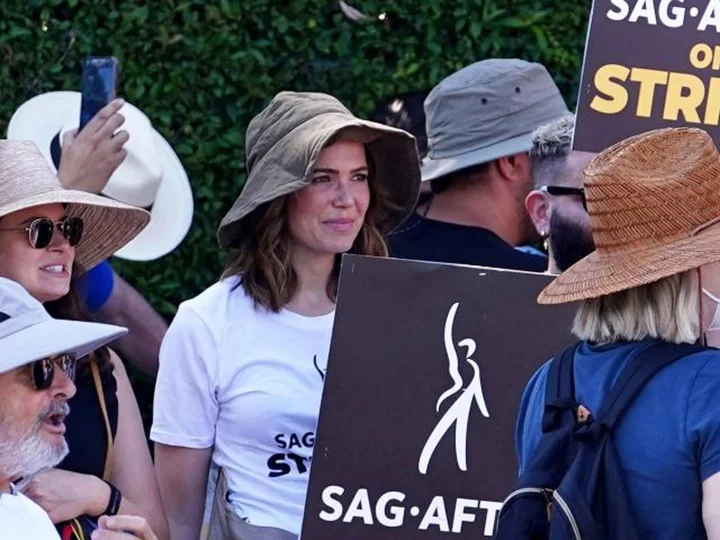Mandy Moore, like many other famous faces, joined the picket lines this week to support the SAG-AFTRA strike that commenced on Friday after the actors union and the major studios and streaming platforms failed to reach a deal on a new contract.
One of main points of contention that the union -- which represents about 160,000 Hollywood actors -- are at odds with the streamers over is that of streaming residual payments, a topic that the "This is Us" star weighed in on this week.
"I want to bring a bit more clarity to a very nuanced issue. Striking isn't fun," Moore wrote in the caption of an Instagram post on Wednesday, adding "No one hoped it would come to this" because "the trickle-down effect felt across so many industries is already devastating."
Moore continued, "There are plenty of issues that are gumming up the wheels (transparency with data, wage increases, residuals, ai, etc...) and I spoke about one that happened to be top of my mind because of a conversation I'd been having while picketing."
The actor and singer was referencing a picket line interview with the Hollywood Reporter published on Tuesday, where she said that she received "very tiny, like 81 cent checks" for streaming residuals for "This Is Us" after the NBC hit began playing on Hulu.
In her post on Wednesday, she clarified that despite the less-than-a-dollar streaming residuals she receives, she's aware of and appreciates her success, saying, "I fully acknowledge the profoundly lucky and rarified position I'm in as an actor at this moment, one that I don't take for granted and one I also don't assume to be in forever."
She also pointed out that for actors on any level, Hollywood can be "fickle."
"I've had very lean years where I couldn't get a job and those are precisely the moments when in years past, actors could rely on residuals from their past work to help them get by," she said, adding "the world and business have changed."
SAG-AFTRA president Fran Drescher has spoken at length about the issue of streaming residuals since the strike commenced on Friday.
The "old business model," as Drescher has put it, is based primarily off of network television, which provided transparency with ratings and viewership data, making it easier to track distribution and syndication, and to determine the success of a show.
These metrics, in turn, allowed for performers and crew members to receive corresponding residual payments over time.
During a livestream with Sen. Bernie Sanders Tuesday night, the "Nanny" star explained that the business model has changed since that age of network television and residuals, specifically due to the advent of streaming, and underscored how this "new business model" requires a structurally new union contract that is reflective of those changes.
Streaming giants have notoriously been secretive about viewership and ratings data, which is something Drescher told Sanders she believes may one day be "against the law."
The issue of streaming residuals is top of mind for members of the Writers Guild of America (WGA) as well, who've been on strike since May.
"Here's hoping we get a fair contract soon so we can get back to doing the jobs we all love and miss so much," Moore wrote in her social media post on Wednesday.

